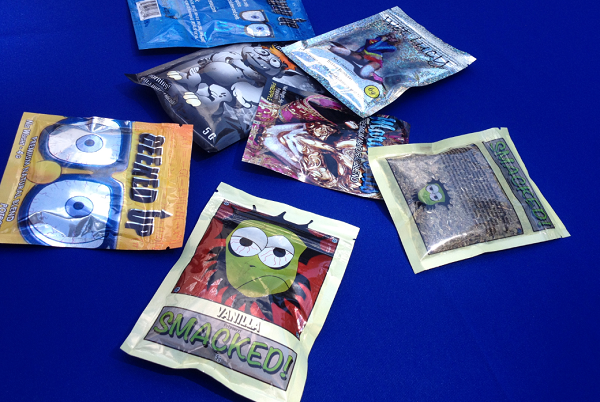Synthetic Marijuana May Make You More Violent, Study Says

Teens using synthetic marijuana were more likely to use other illicit drugs and alcohol and have higher risks of displaying violent behavior, according to a new study released in the journal Pediatrics Monday. The study, conducted by the Centers for Disease Control and Prevention, also found young people who use synthetic marijuana were more likely to have high-risk sex.
The department compiled data from a 2015 Youth Risk Behavior Survey, which polled more than 15,600 high school students in grades nine through 12 on their behavior regarding substance use, sexual health, mental health and injury and violence. Nine percent of students reported using synthetic cannabis while 30 percent had only tried marijuana.
Sixty-one percent had never experimented with marijuana or synthetic cannabis at all.
Read: Things To Know About The Synthetic Marijuana Drug
"The findings illustrate a dramatic difference in the association with risky health behaviors by type of marijuana use," Centers for Disease Control Health Scientist Heather Clayton, who was involved in the study, told Live Science. “We found that students who used synthetic marijuana had a significantly greater likelihood of engaging in the majority of health-risk behaviors included in the study compared to students who used marijuana only.”
Along with a higher likelihood of trying hard drugs like heroin and ecstasy, students who used synthetic cannabis were more likely to display violent or injury-related behavior, including involvement in physical altercations. Of the nine percent of students who reported using fake weed, a third of them had carried a weapon before while half of the students who tried synthetic marijuana had been in physical fights.
Based on the survey’s findings, researchers discovered about one in every 10 high school students had tried synthetic marijuana, including fake weed products like K2 and Spice, at some point in their lives. Students who consumed fake weed also started using marijuana products at a much younger age compared to students who had only ever used real marijuana. Many of the students who had tried synthetic marijuana and had consumed real cannabis started using the plant as early as 13 years old.
Students who tried fake marijuana were more likely to take sexual risks, with about 15 percent of teens who had tried fake weed reporting having their first sexual intercourse experience by or before the age of 13, compared to just two percent of kids who had never used fake marijuana and 15 percent of teens who had only experimented with cannabis. Thirty-eight percent of the teens who reported using synthetic marijuana also reported having sex with four or more people compared to the three percent of nonusers and 20 percent of students who only used marijuana.
Unlike marijuana, which is a plant, synthetic cannabis is a “man-made mind-altering” substance that consists of shredded plant material sprinkled with a variety of chemicals. K2 or Spice, as it’s often packaged and sold as, can be sold as a liquid, in which users would inhale vapors with the use of an e-cigarette, or it may come in a plant-like form, which can be smoked like a rolled cigarette.
© Copyright IBTimes 2025. All rights reserved.






















